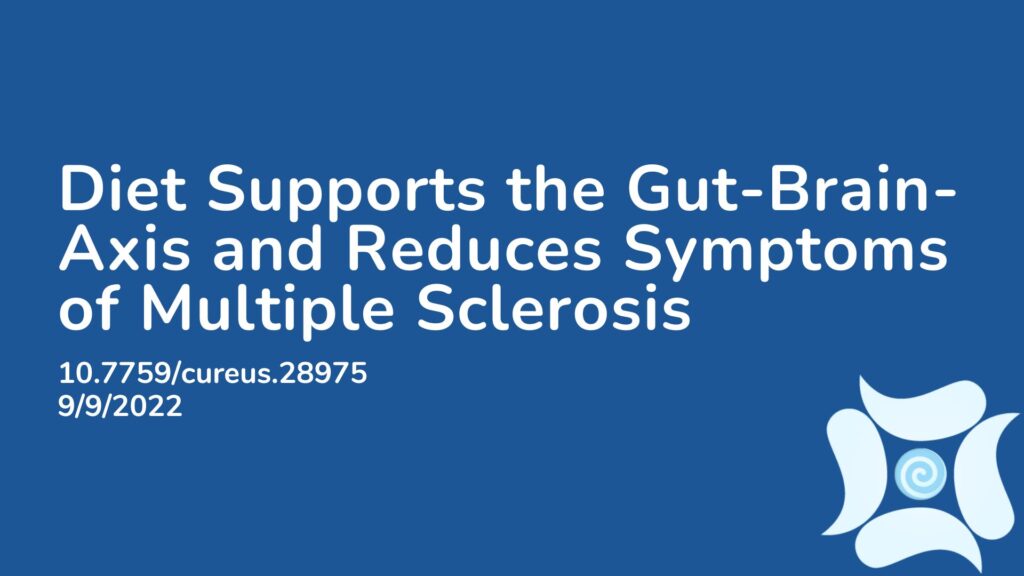Summary:
Multiple sclerosis (MS) is a chronic condition of the central nervous system causing damage to the myelin sheath of nerve cells located in the spine and brain. Research has shown that genetic and environmental factors such as diet and lifestyle play a role, however there is limited knowledge on therapeutic treatments. In this review, the researchers investigate the role of the gut microbiome and diet in MS, as well as a deeper dive into anti-oxidants and vitamins and whether obesity plays a role. Anti-oxidants in the diet showed they may decrease inflammation and mitigate oxidative stress, which can prevent further damage to nerves and cells. Nutrients with anti-oxidant activity such as vitamin D, vitamin A, curcumin and essential fatty acids appeared to positively mitigate oxidative stress, which is heavily implicated in MS. The gut-brain-axis also showed to regulate immune homeostasis. The Ketogenic Diet showed that it may alleviate some of the symptoms associated with MS such as fatigue and depression, while a Mediterranean-DASH Intervention for Neurodegenerative Delay (MIND) diet has shown a decrease in cognitive decline and incidence of MS. The MIND diet encourages plant-based meals and restricts animal-derived or high-saturated fat foods. It promotes anti-oxidant rich foods with neuro-protective substances such as berries and green leafy vegetables.
Abstract:
Multiple sclerosis (MS) is a chronic demyelinating condition of the central nervous system (CNS) characterized by immune-mediated damage to the myelin sheath of nerve cells. Genetic and environmental factors are believed to play a significant role. Unfortunately, the knowledge of therapeutic modalities in MS remains very limited, necessitating the need for novel therapeutic strategies. In the previous decade, there has been an influx of studies on the gut microbiome and its link to various neurological conditions, including MS. Various diets may have favorable effects on the gut microflora and may significantly alter the progression and outcomes of MS. Thus, identifying the merits of various diets and modulating them according to the specific nutritional requirements of MS patients can go a long way toward slowing the progression of the disease. Nutritional interventions and the use of the gut microbiome as diagnostic and therapeutic modalities open a host of new possibilities regarding the disease. In this review, we investigate the role of diet and the gut microbiome in the progression of MS. The functions of the gut-brain axis, antioxidants, vitamins, obesity, and various diets are also covered in this article.
Article Publication Date: 9/9/2022
DOI: 10.7759/cureus.28975



